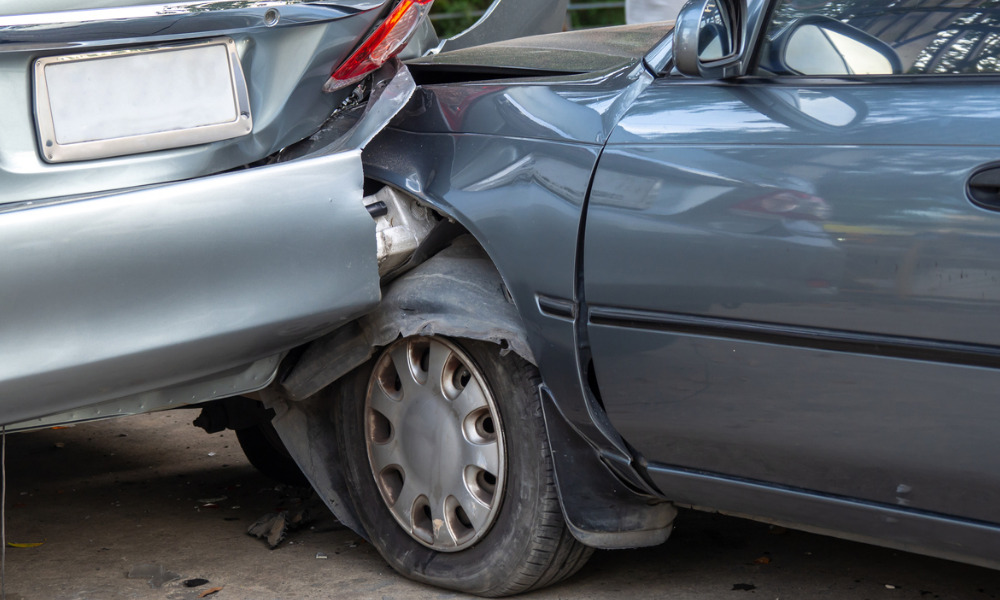Plaintiff developed mental health issues, pain after the accident

The BC Supreme Court has rejected the argument that the plaintiff in a motor vehicle accident failed to mitigate her loss with continued treatment, finding no real and substantial possibility her condition would have improved with additional treatment.
In McWilliams v. Hardy, 2023 BCSC 1259, Morgan McWilliams was driving her mother’s car when she was struck hard from behind by a vehicle driven by the defendant, Ronald Hard. McWilliams sustained various physical injuries from the collision and claimed that the pain from her injuries continued to impair her quality of life and her ability to work and perform household chores. In addition, she claimed that she suffered from depression and debilitating driving anxiety due to the collision.
Hardy admitted liability for the collision but disputed the nature, severity, duration, and consequences of McWilliams’ injuries. Hardy also contested that the crash caused McWilliams’ depression or anxiety. He argued that she had failed to mitigate her damages.
Following the collision, McWilliams missed several classes at the University of British Columbia and left her job as a server at Montana’s Restaurant. She worked at different restaurants with accommodations for her injuries. She eventually pursued a volunteer internship in Ghana. McWilliams later secured a teaching position at an all-female university in Somaliland and later moved to Bahrain, where she teaches grade four students.
Causation
The matter reached the BC Supreme Court, which found that McWilliams sustained soft tissue injuries to her neck, back and shoulders in the collision that have developed into chronic pain. The court further found that McWilliams’ injuries remained symptomatic, causing her to experience pain resulting from the crash. She also suffered post-traumatic headaches, which persisted until now, although less frequently.
The court likewise found that McWilliams developed major depression and a somatic symptom disorder (SSD) secondary to the chronic pain caused by the collision. The court stressed that these psychological disorders had impaired McWilliams’ physical recovery and damaged her function and quality of life. The court found that she continued to struggle with driving anxiety and persistent distressing thoughts about her pain and limitations.
The court rejected the defendant’s argument that McWilliams’ major depression is a pre-existing condition. The court found that while McWilliams suffered from depression and experienced a depressive episode as recently as two months before the collision, there was no evidence of a risk of a natural progression of her pre-existing depression to post-collision psychological disorders.
The court ultimately held that the evidence established a substantial connection between the collision and McWilliams’ physical and psychological injuries. On a balance of probabilities, the court was satisfied that “but for the defendant’s negligence, Ms. McWilliams would not have suffered from chronic pain,” including persistent headaches, major depression, and SSD.
The court noted very little evidence at trial to assess the likelihood of success of proposed therapies in McWilliams’ case. The court said that if the treatments show positive results, they will likely be incremental and long-term. While there is a real and substantial possibility that her functioning and quality of life could improve, the likelihood she will recover completely from the current chronic pain condition is low.
Mitigation and Damages Awarded
The defendant requested the court to reduce damages by 20 percent because McWilliams allegedly failed to mitigate her loss with continued treatment following the collision.
The court noted that the defendant bears the burden of proving that the plaintiff could have avoided all or a portion of the loss. The defendant relied on the evidence that McWilliams discontinued physiotherapy. The defendant also pointed out that McWilliams failed to attend treatment clinics while she was living abroad.
However, the court was not persuaded by the evidence that there was a real and substantial possibility that McWilliams could have avoided her current condition with more physiotherapy or massage. In addition, the court said that the evidence did not establish that McWilliams unreasonably neglected her mental health following the collision. The court found she attended 30 counselling sessions to address her driving-related anxiety, and she testified that she is willing to attend further counselling.
Ultimately, the court was not persuaded that McWilliams unreasonably avoided recommended treatment. Further, the court was not convinced that there was a real and substantial possibility her condition would have improved with additional treatment. Accordingly, the court found that the defendant failed to meet his burden of establishing that McWilliams could not mitigate her loss with further treatment.
The court awarded total damages of $293,575.64, which includes non-pecuniary damages, past wage loss, loss of future income earning capacity, cost of future care, and special damages.










